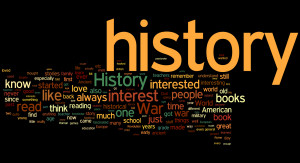 Why is it important to study history? In an essay entitled “Learning in War-Time,” C. S. Lewis provides this insight:
Why is it important to study history? In an essay entitled “Learning in War-Time,” C. S. Lewis provides this insight:
We need intimate knowledge of the past. Not that the past has any magic about it, but because we cannot study the future, and yet need something to set against the present, to remind us that the basic assumptions have been quite different in different periods and that much which seems certain to the uneducated is merely temporary fashion.
People have a tendency to look around them and think what they see currently is ultimate reality, when, in fact, it may be only a temporary trend. Knowing history allows them to understand that what we’re experiencing now may be fleeting. He continues,
A man who has lived in many places is not likely to be deceived by the local errors of his native village: the scholar has lived in many times and is therefore in some degree immune from the great cataract of nonsense that pours from the press and the microphone of his own age.
If all you know about your culture and government policies is what the mainstream media is telling you, you are of all people possibly the most uninformed. You are a slave to whatever you’re told because you haven’t taken the time to find out things for yourself. Knowing history helps set one free. That’s why Lewis also commented in another essay, “De Descriptione Temporum,”
To study the past does indeed liberate us from the present, from the idols of our own market-place. But I think it liberates us from the past too. I think no class of men are less enslaved to the past than historians.
Thank you, Prof. Lewis, for your praise of my profession. May I live up to your high expectations.
